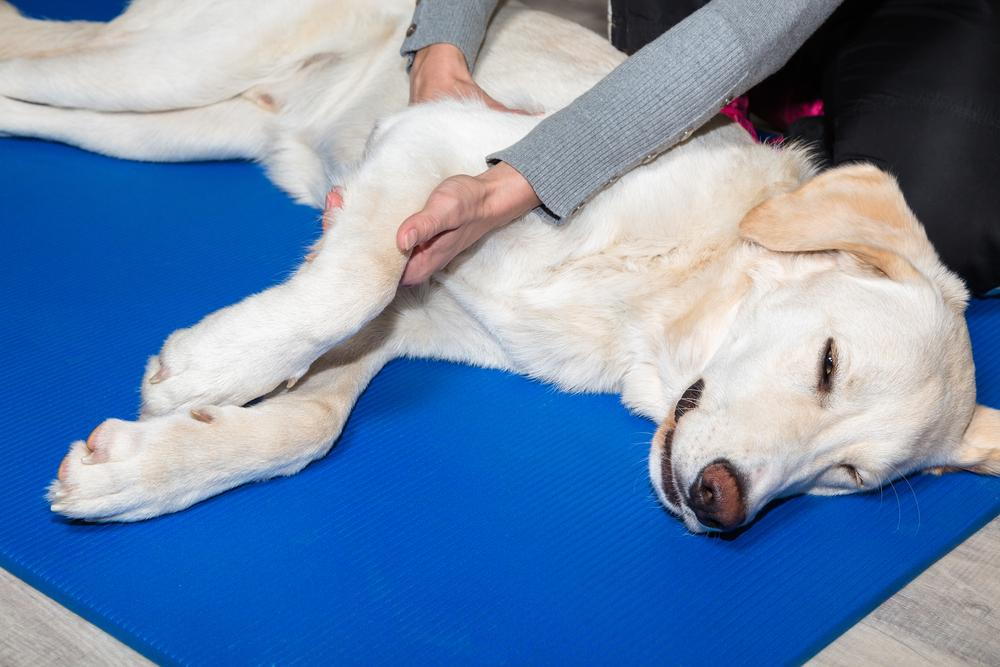
Concerned about Pet Anesthesia? Talk to your Durham Veterinarian to Learn More
- posted: May 21, 2019
Talk to your Durham Veterinarian to Learn More
There are many procedures that require the use of pet anesthesia to complete. Got concerns about anesthetizing your dog or cat? Talk to your veterinarian at New Hope Animal Hospital in Durham to discuss potential risk factors.
When it comes to pet anesthesia, is your pet high-risk?
Species and Breed
Depending on the species and breed of your pet, your risk factors vary. For instance, dogs are less risk than cats, but some breeds are riskier, like Brachycephalic Pugs and Persians or history of tracheal issues, such as Poodles and Poms. It can be challenging to anesthetize these breeds.
Age
Just as age plays a role when humans go under-the-knife, older pets are also at higher risk when anesthetized. It can depend on how their organs are functioning and whether they have normal blood pressure. Your vet can test older dogs or cats to help you weigh the risks against the benefits.
Physical Health
Overall physical health, like weight and medical history, also play a vital role in determining risk factors during anesthesia. Any existing issues with the heart, trachea, or airway should require specialized care from a licensed anesthesiologist. If your dog or cat is over-or-underweight, put them on a nutritional plan prior to the procedure, if possible. It can be difficult to determine the right amount of anesthesia to give dogs and cats that are not within normal, standard guidelines to be both safe and effective.
Are you concerned about anesthesia with your pet? Call us today.
Generally speaking, the risks of anesthesia for your pet are very low; in fact, one study showed that among healthy dogs, only .05% were at risk of death during anesthesia and the risk is around .1% among healthy cats. If your pet needs a procedure and anesthesia is involved, talk to your veterinarian at New Hope Animal Hospital in Durham at (919) 490-2000 to discuss the risks and benefits today.

Concerned about Pet Anesthesia? Talk to your Durham Veterinarian to Learn More
- posted: May 21, 2019
Talk to your Durham Veterinarian to Learn More
There are many procedures that require the use of pet anesthesia to complete. Got concerns about anesthetizing your dog or cat? Talk to your veterinarian at New Hope Animal Hospital in Durham to discuss potential risk factors.
When it comes to pet anesthesia, is your pet high-risk?
Species and Breed
Depending on the species and breed of your pet, your risk factors vary. For instance, dogs are less risk than cats, but some breeds are riskier, like Brachycephalic Pugs and Persians or history of tracheal issues, such as Poodles and Poms. It can be challenging to anesthetize these breeds.
Age
Just as age plays a role when humans go under-the-knife, older pets are also at higher risk when anesthetized. It can depend on how their organs are functioning and whether they have normal blood pressure. Your vet can test older dogs or cats to help you weigh the risks against the benefits.
Physical Health
Overall physical health, like weight and medical history, also play a vital role in determining risk factors during anesthesia. Any existing issues with the heart, trachea, or airway should require specialized care from a licensed anesthesiologist. If your dog or cat is over-or-underweight, put them on a nutritional plan prior to the procedure, if possible. It can be difficult to determine the right amount of anesthesia to give dogs and cats that are not within normal, standard guidelines to be both safe and effective.
Are you concerned about anesthesia with your pet? Call us today.
Generally speaking, the risks of anesthesia for your pet are very low; in fact, one study showed that among healthy dogs, only .05% were at risk of death during anesthesia and the risk is around .1% among healthy cats. If your pet needs a procedure and anesthesia is involved, talk to your veterinarian at New Hope Animal Hospital in Durham at (919) 490-2000 to discuss the risks and benefits today.
Visit Our Office
New Hope Animal Hospital
5016 Durham-Chapel Hill Blvd
Durham, NC 27707

